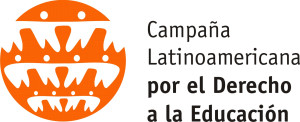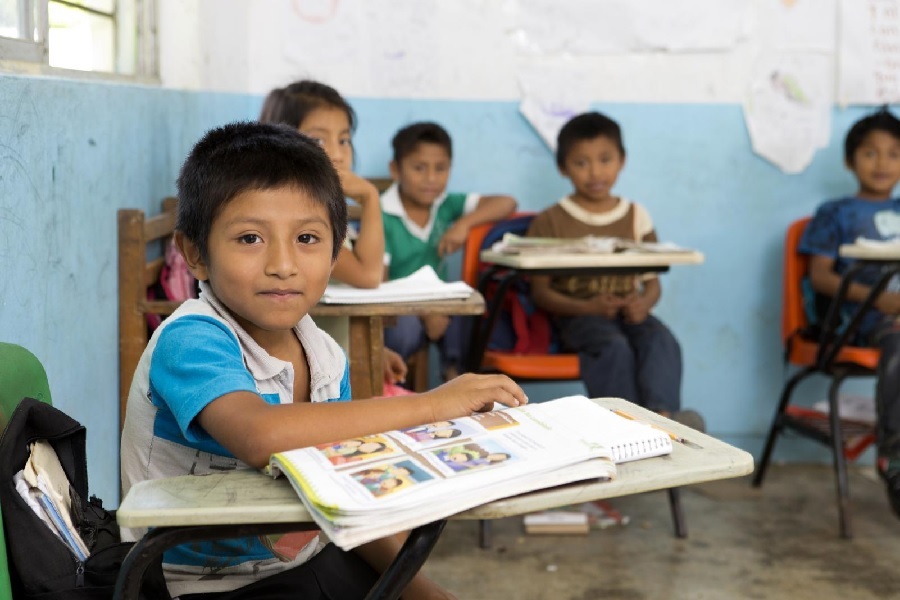
CLADE and CLACSO are promoting a webinar on the Right to Education from a Global South perspective
September 15, 2020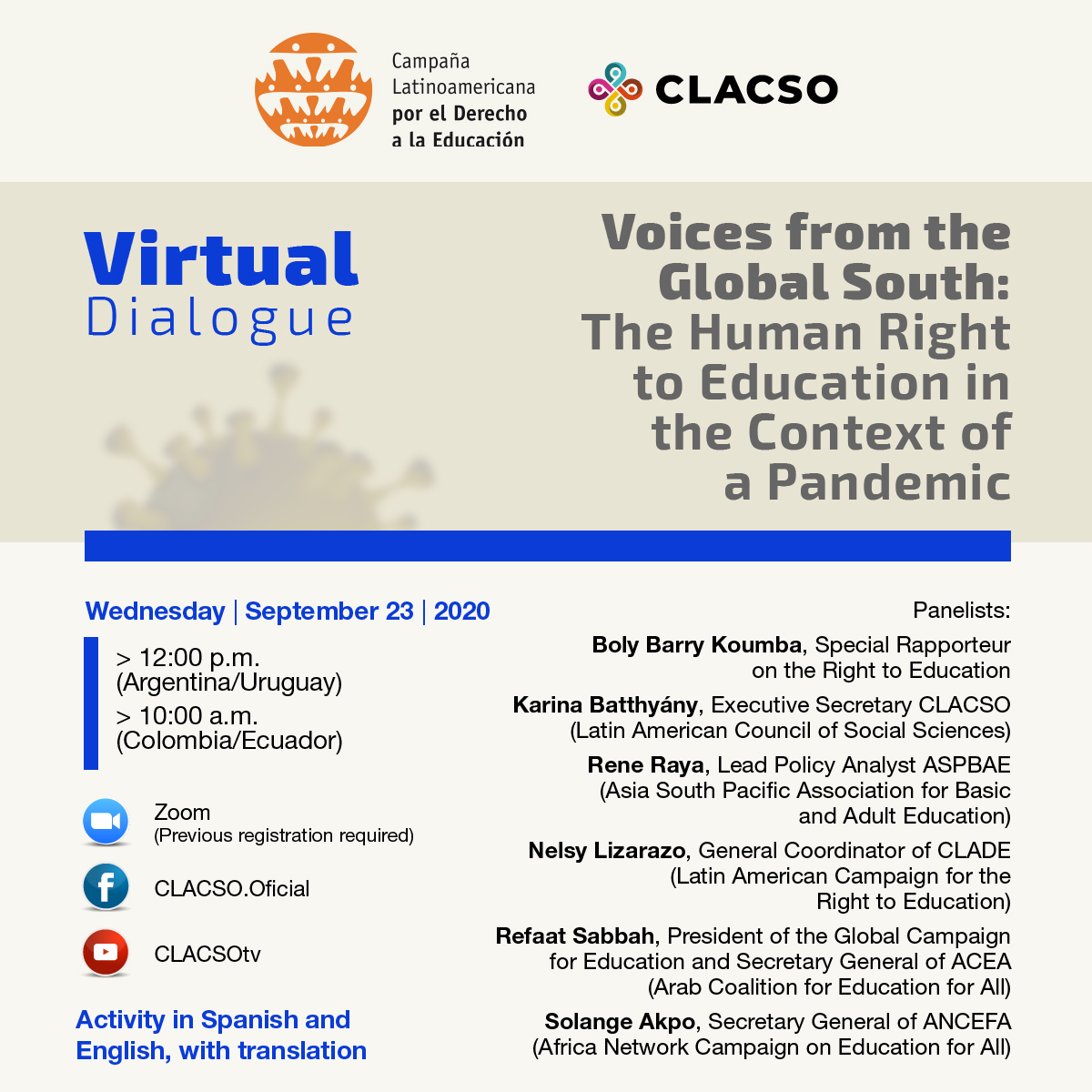 On September 23, at 12:00 p.m. (GMT-3), the Latin American Campaign for the Right to Education (CLADE, by its Spanish acronym) and the Latin American Council of Social Sciences (CLACSO, by its Spanish acronym) will organize a virtual dialogue “Voices from the Global South: The Human Right to Education in the Context of a Pandemic.”
On September 23, at 12:00 p.m. (GMT-3), the Latin American Campaign for the Right to Education (CLADE, by its Spanish acronym) and the Latin American Council of Social Sciences (CLACSO, by its Spanish acronym) will organize a virtual dialogue “Voices from the Global South: The Human Right to Education in the Context of a Pandemic.”
The objective of this gathering is to analyze, reflect and debate on the human right to education in the context of a pandemic, and from a Global South perspective. United Nations (UN) Special Rapporteur for the Right to Education, Boly Barry Koumba will participate in this event. Joining the Special Rapporteur will be CLACSO Executive Secretary, Karina Batthyány; CLADE General Coordinator, Nelsy Lizarazo; the President of the Global Campaign for Education (GCE) and Secretary General of the Arab Coalition for Education for All, Refaat Sabbah; the Lead Policy Analyst of the Asian South Pacific Association for Basic and Adult Education (ASPBAE), Rene Raya; and the Secretary General of the African Network Campaign on Education for All (ANCEFA), Solange Akpo.
The activity is open, free and will be broadcasted through CLACSO Facebook page, Youtube and Zoom. The webinar will be conducted with Spanish-English simultaneous translation. Previous registration here is required for Zoom participation.
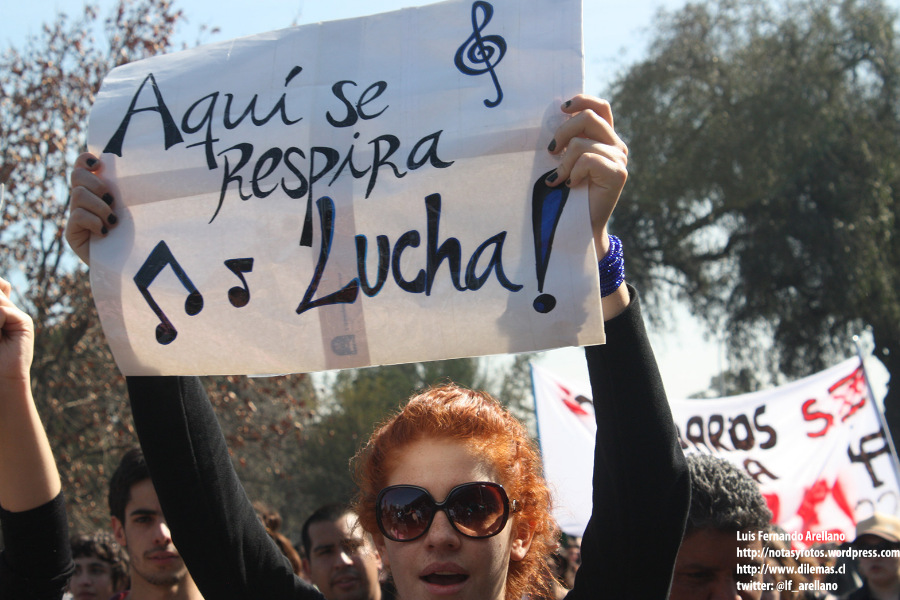
Youth from Latin America and the Caribbean transforming education
August 12, 2019In 1999, United Nations General Assembly appointed August 12 as the International Youth Day, an annual celebration aimed at promoting the role of youth in processes of change, as well as raising awareness on the challenges and contexts faced by young people.
(more…)
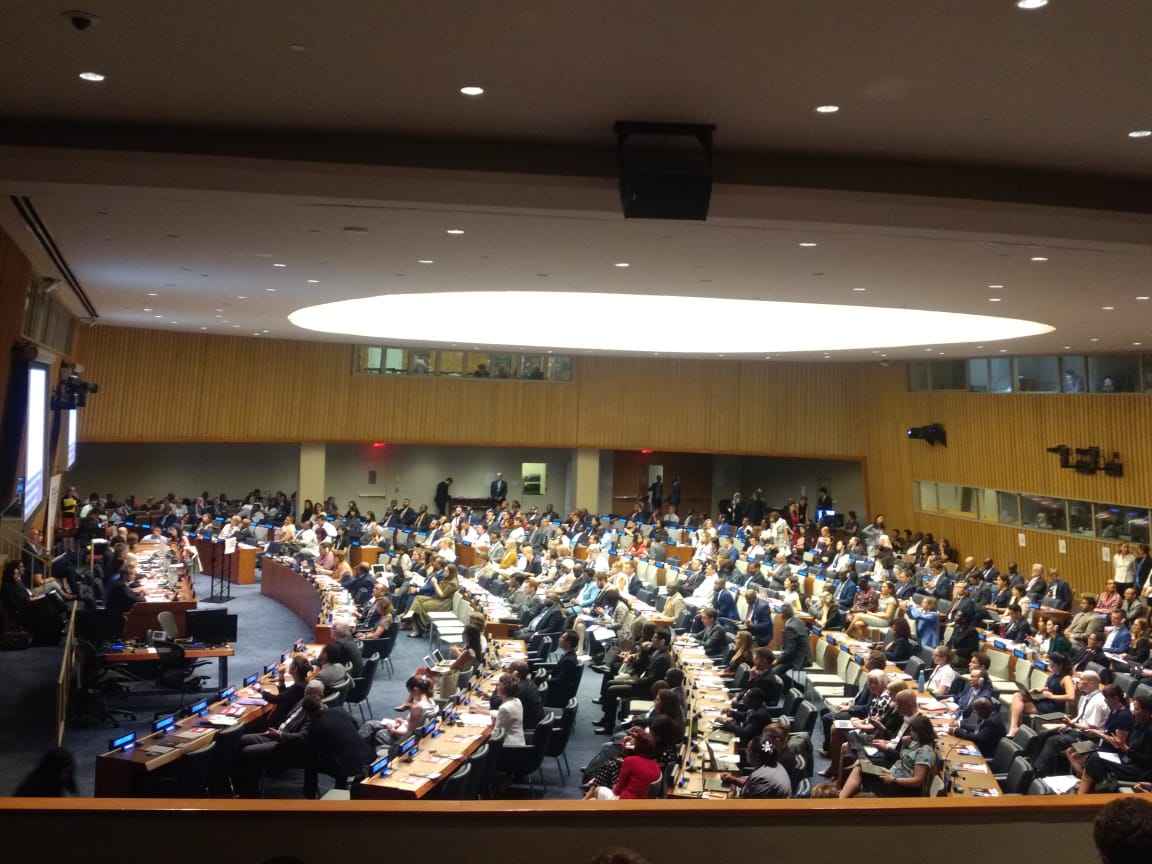
SDG 4 Review of Chile and Guatemala at the UN
July 17, 2019At the UN High-Level Political Forum, the platform to follow up SDGs across the world, Chile and Guatemala presented their voluntary national reviews about the implementation of this agenda. Four countries from Latin America and the Caribbean volunteered to participate in the 2019 review, reporting the actions taken for the achievement of the SDGs: Chile, Guatemala, Brazil and El Salvador. However, on the eve of the High-Level Political Forum, the last two countries announced that they would not participate in the review.
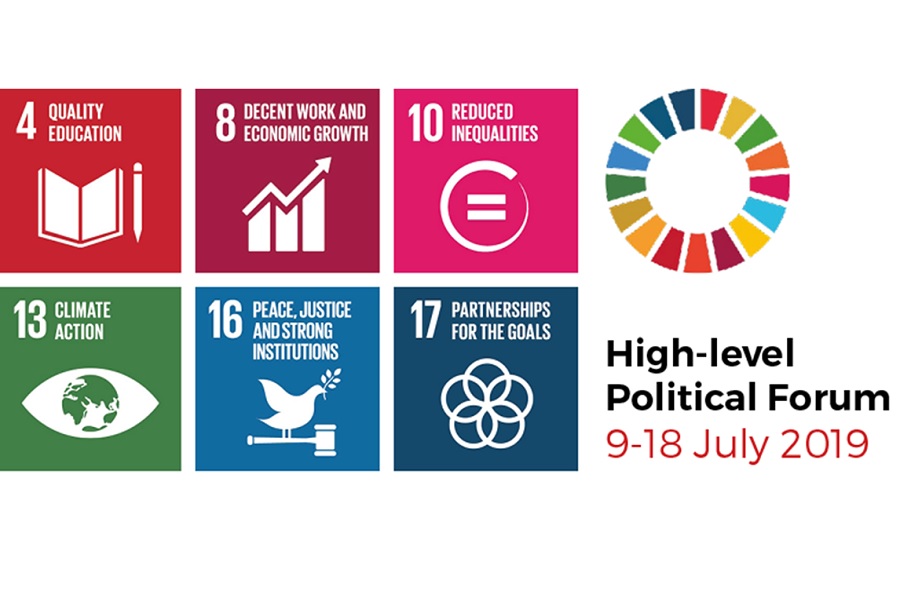
Brazil does not participate at the SDG 4 review in the UN
July 16, 2019In a session to review the status of implementation of the Sustainable Development Goal (SDG) 4, which seeks to ensure inclusive education, with equity and quality, and promote lifelong learning opportunities for all, Brazil has not pronounced.
“Brazil withdrew because it presents setbacks in terms of Human Rights. Our teachers do not have proper conditions to teach, many students do not learn and we have millions of people without access to school or illiterate,” analyzed Daniel Cara, general coordinator of the National Campaign for the Right to Education (CNDE), who follow-up the United Nations High Level Political Forum (UN), a platform for monitoring the SDGs worldwide.
The CNDE integrated the delegation of the Latin American Campaign for the Right to Education (CLADE) in the Forum, and presented a report on the status of SDG 4 in Brazil to the UN Economic and Social Council (ECOSOC) and the Human Rights Council (OHCHR). It also participated in the preparation of collective civil society reports at national, regional and global level, on the SDGs.
The Sustainable Development Goals were adopted by the UN Member States in September 2015, and must be achieved by 2030.
“We are on the eve of completing a third of the period of the agenda and the evaluation is that we have advanced less than necessary to guarantee the human rights which we seek to move forward. In addition, the progress that has been observed remains uneven, and several developing countries have faced political and economic crises that even show setbacks in relation to the commitments assumed at the international level. Unfortunately, Brazil is one of those cases,” said Andressa Pellanda, executive coordinator of the National Campaign.
>> See the full report in Portuguese and English
Read more:
Brasil: In a message to the UN, National Campaign expresses concern about the rights of children and adolescents
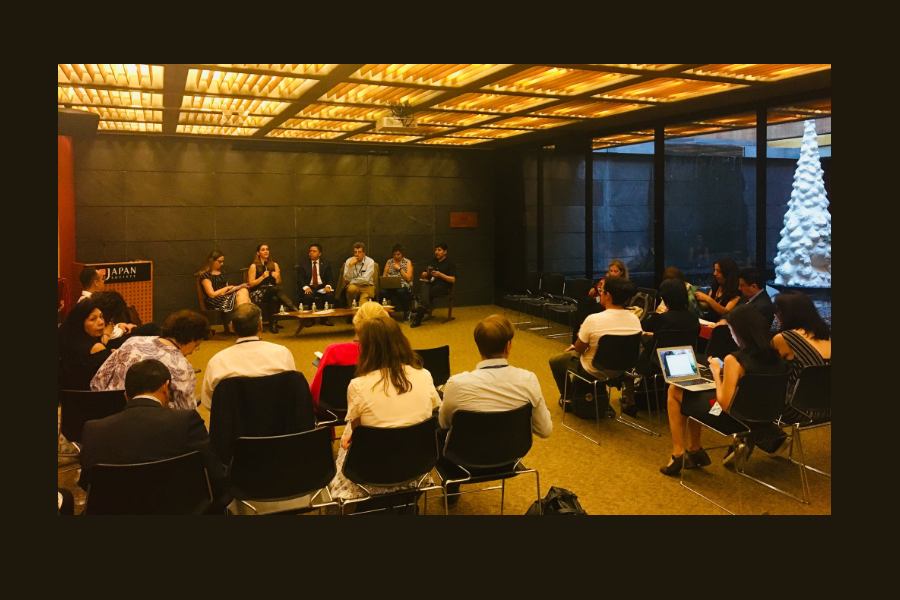
Side event during the UN Forum: “We must educate for citizenship and democracy”
July 11, 2019“One of the main challenges is to guarantee educational quality and, for that, reflect on what kind of quality we want, towards the guarantee of an education that trains people for global citizenship and the strengthening of democracy.” This was one of the reflections that were shared during the high-level discussion “Human rights at risk: impacts for education in Latin America and the Caribbean.” The meeting was held yesterday (July 10) in New York, in the context of the UN High-Level Political Forum, and as an initiative of the Latin American Campaign for the Right to Education (CLADE).
The participants in the opening table of the event were: Héctor Alejandro Canto Mejía, Deputy Minister of Education of Guatemala; Naiara Costa, from the Division of the SDGs (Sustainable Development Goals), Department of Economic and Social Affairs of the United Nations (UN / DESA); Roberto Bissio, from Social Watch; and Camilla Croso, general coordinator of CLADE.
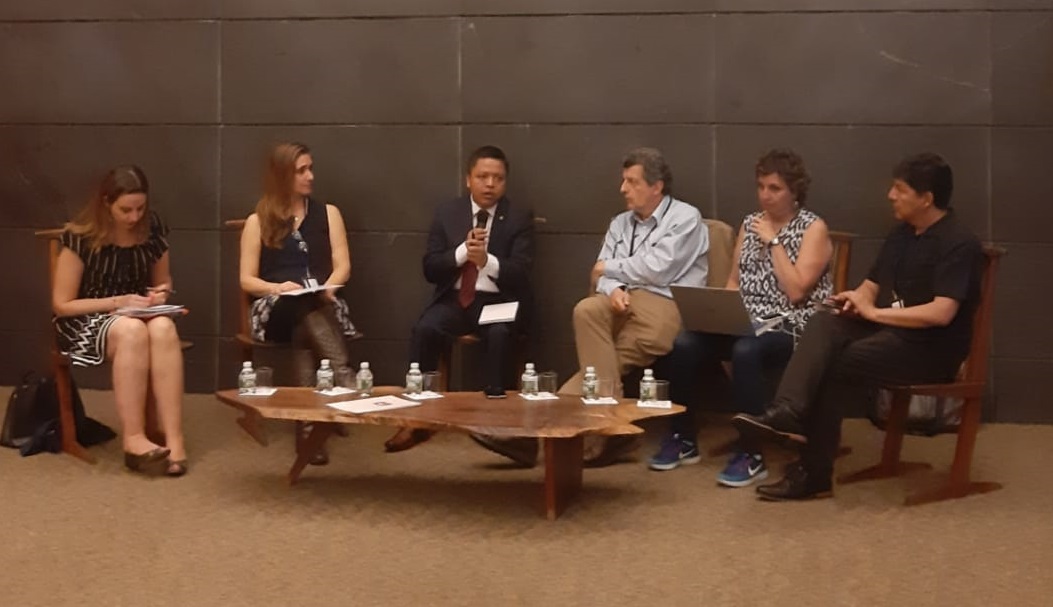
During the discussion, the challenges of education in the region were addressed, in a context of setbacks for human rights and multilateralism, as well as of fragility of democracies. Cultural diversity; school coverage in primary and secondary school; teacher training; migration; respect for diversity and gender equality in education; educational financing; the increased privatization, while public systems are stigmatized; and the challenge of guaranteeing a quality lifelong education for all, were topics highlighted in the presentations.
“All human rights are at risk when we do not comply with the human right to education,” said Camilla Croso at the opening of the conversation.
Next, the Deputy Minister of Education of Guatemala, pointed out some challenges for the realization of the human right to education in his country. “The main challenges are guaranteeing coverage and, in parallel, advancing the rate of completion, transition from primary to secondary school, quality and equity in the education system,” he said.
He added as another challenge the guarantee of quality lifelong education for all. “An education that provides training for global citizenship and democracy.”
Roberto Bissio emphasized the importance of ensuring human rights and protecting the people who defend these rights beyond the achievement of the Sustainable Development Goals. “The central question is to what extent the SDGs legitimize the struggle for rights. We can not forget that in Latin America and the Caribbean human rights defenders are at constant risk,” he said.
Naiara Costa addressed the role of the United Nations and multilateralism for the realization of human rights and the promotion of sustainable development. “To achieve the SDGs, it is essential to connect the global level with the local, national and regional levels”, he said.
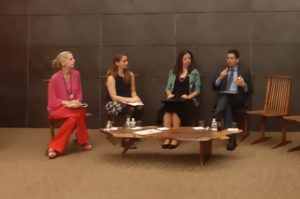
Debate
Representatives from the following organizations: Argentine Campaign for the Right to Education; Bolivian Campaign for the Right to Education; Campanha Nacional pelo Direito à Educação – Brazil; Forum for the Right to Public Education in Chile; Salvadoran Network for the Right to Education; Collective of Education for All of Guatemala; Forum Honduras Honduras; Peruvian Campaign for the Right to Education (CPDE); Socio-educational Forum (Foro Socioeducativo), of the Dominican Republic; Popular Education Network among Women of Latin America and the Caribbean (REPEM); ILGALAC (International Lesbian, Gay, Bisexual, Trans and Intersex Association for Latin America and the Caribbean); Global Campaign for Education; ActionAid International; and EDUCO, among other organizations and networks, participated in the debate.
Vernor Muñoz, from Global Campaign for Education, recalled, as an obstacle to education and other human rights, the criminalization of social protest, especially of students and teachers in different countries of Latin America and the Caribbean, which also operates in the symbolic field and in the media.
Roberto Baeza, from ILGALAC, spoke about comprehensive sexual education and school violence against LGBTI people. “Gaps in inequality in education and other sectors are widened with the advance of fundamentalisms. The trans population does not have access to their right to education, they are who most leave the school because of experiences of discrimination,” he said.
Marcela Browne, from the Argentine Campaign for the Right to Education, said that in the debate on the fulfillment of the right to education, it is necessary to ask: “What are the risks of external debt and tax fraud for educational justice in the region?
New document
During the event, CLADE launched the publication “Civil Society Advocacy for the Human Right to Education: Stories and Lessons Learned from Latin America and the Caribbean – Volume 3”.
Read more and download the document here
CLADE at the UN High-Level Political Forum
Almost four years after the adoption of Sustainable Development Goal 4 (SDG 4), about education, the United Nations High-Level Political Forum (HLPF) 2019, official platform for monitoring the Sustainable Development Goals (ODS) internationally, took place from 9 to 18 July in New York.
In this edition, the HLPF focuses on the revision of SDG 4, as well as goals 8 (decent work and economic growth), 10 (reduction of inequalities), 13 (climate action), 16 (peace, justice and solid institutions) and 17 (partnerships to achieve the objectives).
CLADE participated in the HLPF and its side events with a delegation of 14 people from 9 countries: Argentina, Bolivia, Brazil, Chile, El Salvador, Guatemala, Honduras, Peru and the Dominican Republic.
CLADE members in the countries that were reviewed by the UN this year (Guatemala and Chile) prepared reports with contributions on the status of SDG 4 at national level. In addition, CLADE members from Brazil and El Salvador prepared reports, highlighting the challenges of education in their territories, since these countries had indicated that they would participate in the review process carried out by the UN, but finally this did not happened.
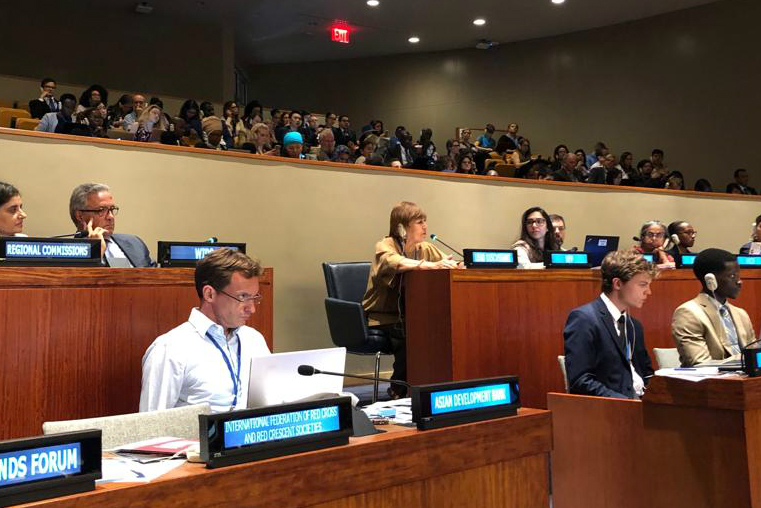
Review of SDG 4: “Quality education must be centered on people and their dignity”
July 10, 2019Yesterday, the review of the Sustainable Development Goal number 4 (SDG 4), about education, was initiated at the United Nations, within the framework of the High Level Political Forum, which takes place until July 18 in New York, USA.
Three hours of debate were dedicated to look at the situation of the right to education worldwide with the participation of representatives from different countries, as well as from different sectors of civil society, among them indigenous people, children and youth, Lesbian, Gay, Bisexual, Trans and Intersex (LGBTI) people and persons with disabilities.
“The diversity of civil society representatives and interventions emphasized an intersectoral perspective of education, which represents a fundamental advance comparing to the debates on the 2030 Agenda that took place in previous years,” said Camilla Croso, general coordinator of the Latin American Campaign for the Right to Education (CLADE), which accompanies the event in New York.
The participation of GCE vice president and coordinator of the Peruvian Campaign for the Right to Education (CPDE), Madeleine Zúñiga, was another highlight of this first panel on SDG 4. In her speech, she pointed out that “education is a powerful instrument to transform lives and, therefore, transform the world; not any education, but one that promotes sustainable development, social justice, truly democratic societies, global citizenship and the culture of peace that the whole world requires.”
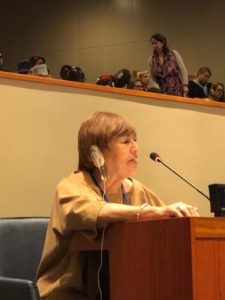
Madeleine Zúñiga emphasized that a quality education must be centered on people and their dignity, assuming the multiple dimensions of diversity to design models and relevant strategies according to the characteristics of different societies. She added that it is fundamental to ensure the right to lifelong education and solid teacher training, within the framework of human rights and comprehensive and muti-sectorial educational attention; as well as bigger and better investment in public education.
“That requires a substantive improvement of tax rules and a strong political will to fight against tax evasion and avoidance, and to achieve tax justice, as well as to face the increasing privatization, an unregulated process that is allowing profit interests in education. Low-cost and low-quality private schools, with poorly paid teachers, not only violate the right to education, but also deepen the inequalities,” she said.
Download the intervention of Madeleine Zúñiga (In Spanish)
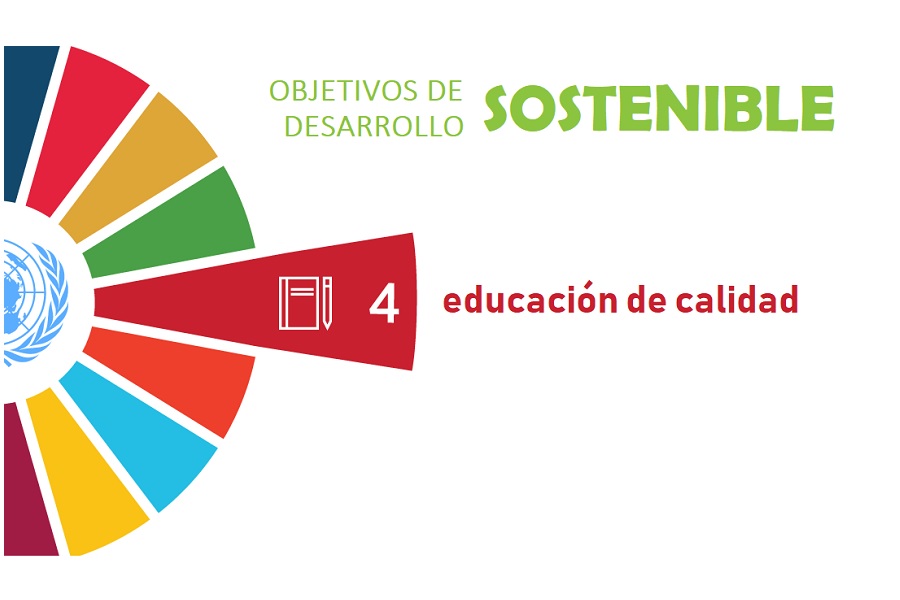
Organizations from Latin America and the Caribbean demand UN to include SDG 4 in the draft of the declaration of the High Level Political Forum
June 5, 2019“It is with great concern that the networks and civil society organizations that work for the realization of the human right to education in Latin America and the Caribbean review the “zero draft” of the Political Declaration of the High Level Political Forum (HLPF) and note the total absence of State commitments in education and the acknowledgement of its crucial importance in the scope of the SDGs, human rights, democratic strengthening and peace”.
These words were presented in a letter signed by the Latin American Campaign for the Right to Education (CLADE) and other networks, coalitions and civil society organizations in Latin America and the Caribbean, which was sent today (6 June) to United Nations authorities, with the purpose of advocacing for the inclusion of references to the SDG 4 in the Political Declaration of the High Level Political Forum.
The FPAN is the official platform for monitoring compliance with the SDGs worldwide, and is carried out within the UN, focusing each year on the monitoring of specific Objectives of the Agenda, as well as the analysis of voluntary national reviews presented by the Member States
The next edition of the Forum will take place from July 9 to 18 of this year in New York, with an emphasis on the revision of SDG 4, as well as Objectives of number 8 (decent work and economic growth), 10 (reduction of inequalities), 13 (action for climate), 16 (peace, justice and solid institutions) and 17 (partnerships to achieve the objectives).
With the letter sent to the UN, organizations and networks demand the inclusion of SDG 4 in the next versions of the declaration. “We hope that this absence will be overcome in the following versions of the Declaration, so that the United Nations can transmit to the whole world, in a clear and forceful way, the importance of education for peace, justice, environmental sustainability, dignity, as well as the overcoming of patriarchy and all forms of discrimination. Education is key to promoting the implementation of the 2030 Development Agenda in its integrity, and we hope this be acknowledged by the High Level Political Forum”, says Camilla Croso, general coordinator of CLADE.
Read the full letter below.
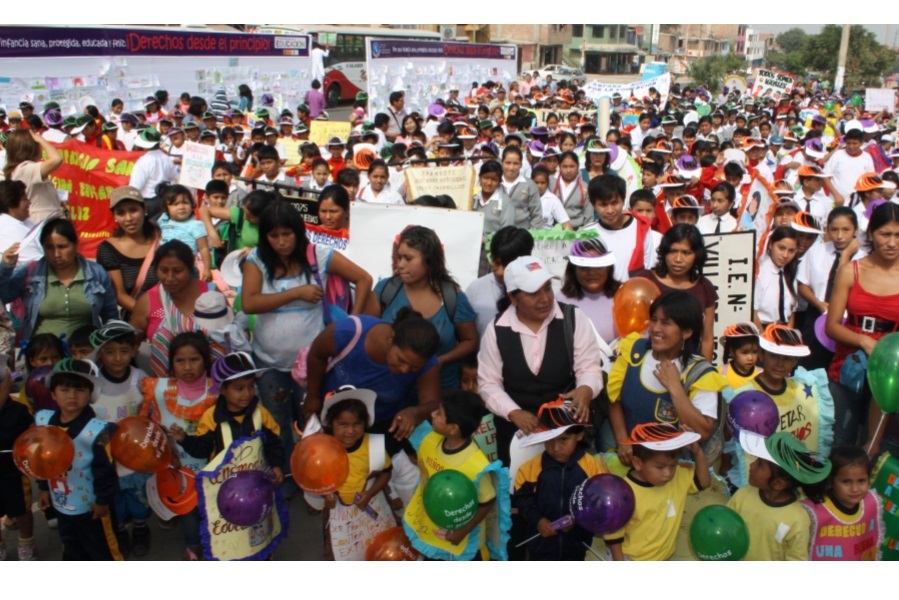
Madeleine Zúñiga: “Great inequality in access and quality is still the challenge of education in Peru”
February 27, 2019Advances, challenges and priority actions in the struggle for the right to education in Peru in 2019 are some of the topics that were discussed in an interview with Madeleine Zúñiga, national coordinator of the Peruvian Campaign for Education.
(more…)
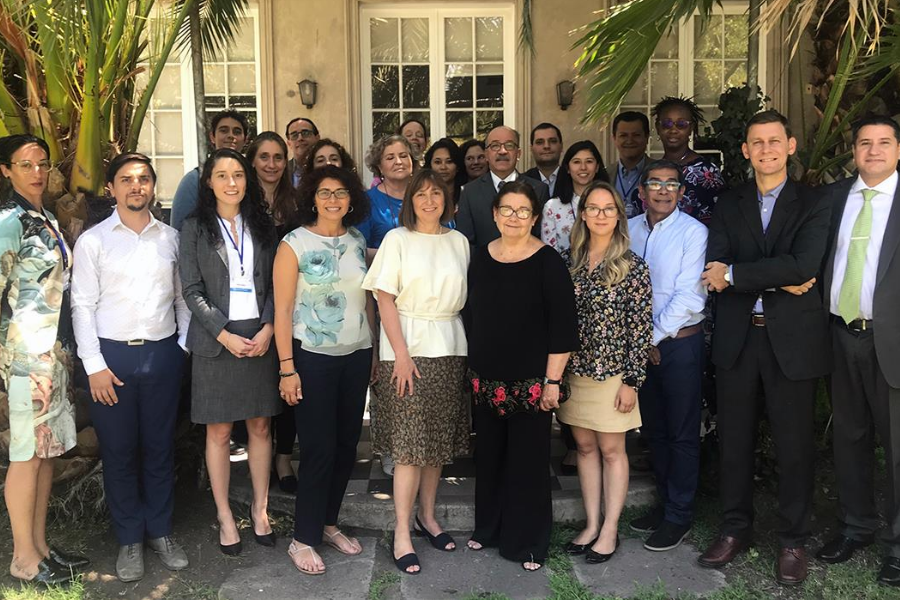
Latin America and the Caribbean align their actions to meet global education targets and move forward in their priorities
February 26, 2019Members of the Regional Steering Committee for Sustainable Development Goal 4-E2030 (quality education) decided during their first meeting that for the next 12 months they will undertake actions that focus on educational inclusion and equity, one of the four regional priorities. The participants urged concrete actions to address the educational challenges associated with intraregional migration such as the recognition, certification and validation of skills and diplomas. Measures to prevent school dropout were also discussed.
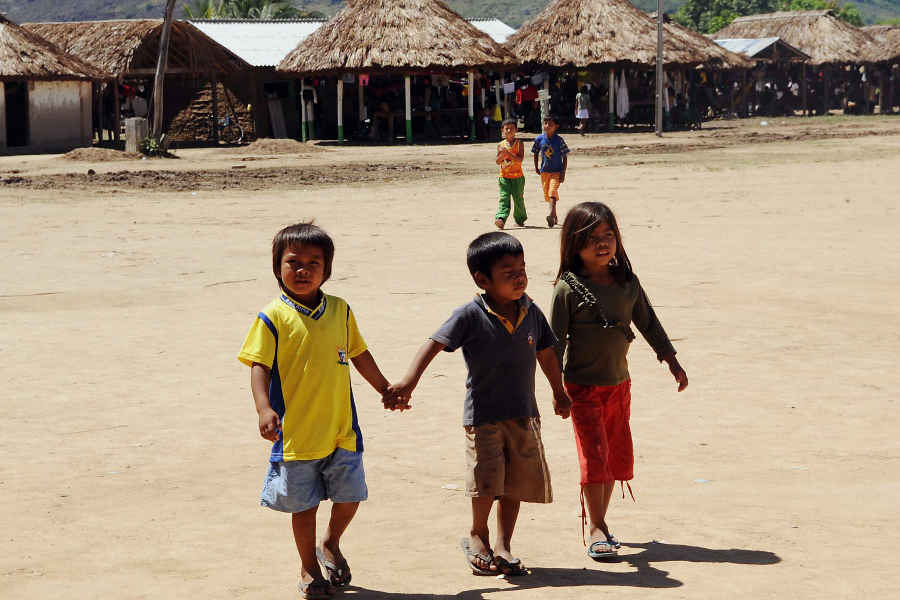
G20 and education: CLADE’s fight for adequate resources for this right
February 7, 2019Activists from Latin America and the Caribbean promoted actions of advocacy, mobilization and communication in the context of the G20, making the world’s largest economies recognize education as an essential human right to promote development with inclusion, prosperity and peace (more…)





